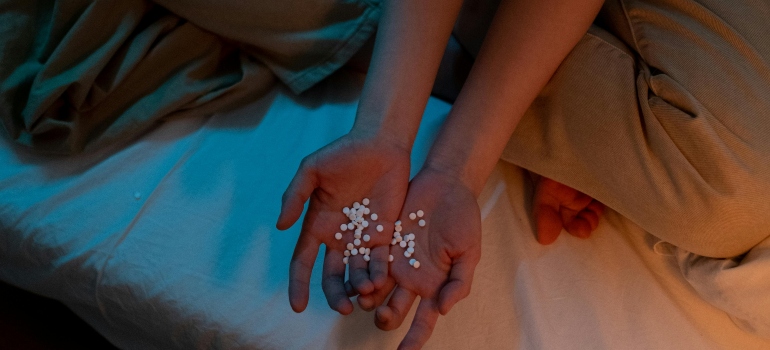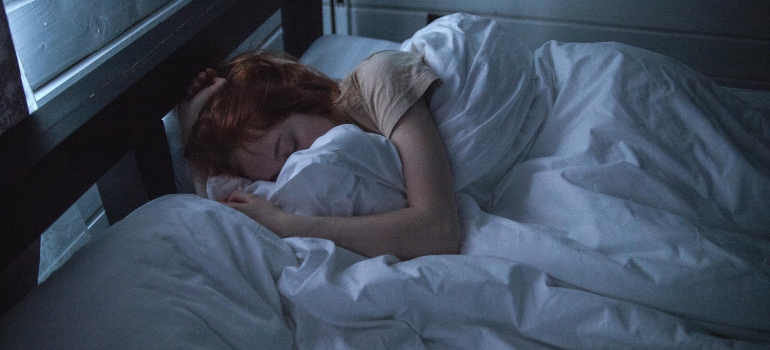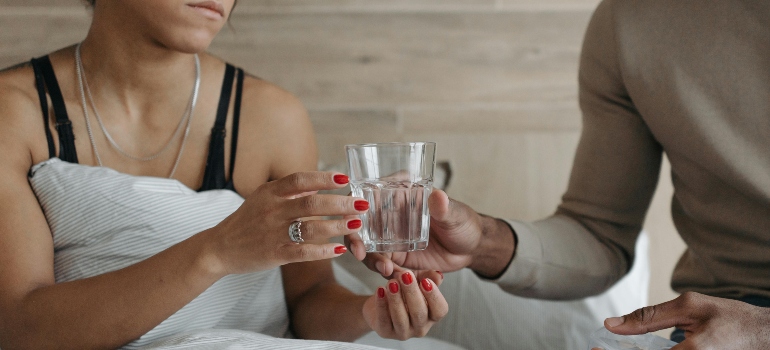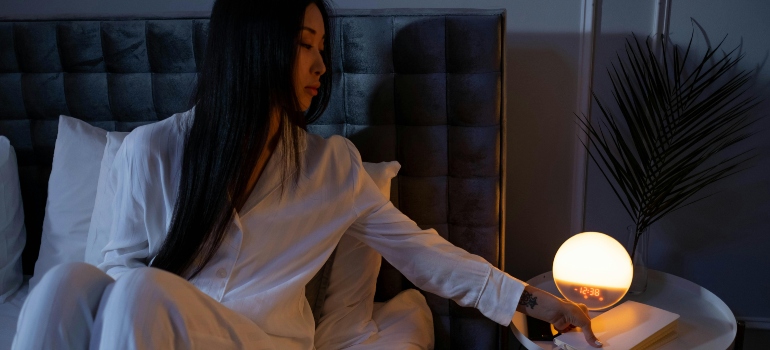Sleep plays a big role in addiction recovery. It helps your body and mind heal after the challenges of substance abuse. However, many people in recovery struggle to get restful sleep. Issues like insomnia and anxiety often make it hard to relax. Restoril and Melatonin are two options people explore to improve sleep during this process. Restoril is a prescription medication, while Melatonin is a natural supplement. Both have unique benefits, but it’s important to understand how they fit into recovery. Addiction treatment centers in West Virginia can provide guidance on using these sleep aids appropriately to support your recovery journey. By learning more about these options, you can make informed choices and take a step closer to better rest.

Sleep Disturbances in Addiction Recovery
Sleep disturbances are a common problem during addiction recovery. Withdrawal symptoms, anxiety, and stress often disrupt sleep patterns. Many people in recovery experience insomnia, making it difficult to fall or stay asleep. Poor sleep can lead to irritability, lack of focus, and physical exhaustion. These challenges can also impact emotional stability, which is key to staying on track with recovery goals.
Research shows that addiction can interfere with the brain’s natural sleep-wake cycle. Substances like alcohol and drugs often suppress or overstimulate certain brain chemicals. When these substances are removed, the body needs time to adjust. This adjustment period can lead to restless nights, nightmares, or fragmented sleep.
Sleep disturbances don’t just affect your energy levels. They can also weaken your immune system, making you more prone to illness. Long-term sleep problems might even increase the risk of relapse. This is why addressing sleep issues is an important part of recovery. Individual therapy in WV can help address underlying emotional and psychological factors contributing to poor sleep. By working with a therapist, you can identify triggers and develop coping strategies to manage stress and anxiety.
Healthy sleep habits can help improve rest over time. Sticking to a regular sleep schedule often helps regulate your body’s internal clock. Avoiding stimulants like caffeine in the evening can make it easier to relax at night. Creating a calming bedtime routine can also prepare your mind for rest.

What Is Restoril and How Does It Work?
Restoril is a prescription medication commonly used to help with short-term sleep issues, such as insomnia. It belongs to a class of drugs called benzodiazepines. These medications work by calming the brain and central nervous system, helping you relax and fall asleep more easily. If you’re in recovery and struggling with sleep, it may be tempting to try medications like Restoril. However, it’s important to understand how it works and its potential risks before using it.
How Restoril Works
Restoril works by enhancing the activity of a neurotransmitter in your brain called GABA (gamma-aminobutyric acid). GABA has a calming effect on the brain, which helps you relax and feel less anxious. When you take Restoril, it increases GABA’s effects, leading to feelings of drowsiness and relaxation. As a result, you’re more likely to fall asleep and stay asleep throughout the night.
Potential Risks of Restoril in Recovery
While Restoril can help with sleep, it’s not without risks, especially for those in addiction recovery. One of the biggest concerns is the potential for dependency. If used for an extended period, your body may become reliant on Restoril to sleep. This can lead to withdrawal symptoms if you try to stop using it. Furthermore, benzodiazepines like Restoril can cause drowsiness, confusion, and impaired coordination, which can be dangerous, particularly when you’re adjusting to life after addiction.
When to Consider Restoril
If sleep problems are severely affecting your recovery, Restoril may be an option for short-term use under a doctor’s supervision. Doctors typically recommend it for people who have trouble sleeping due to anxiety or stress but only for a limited time. Using it alongside therapy and other recovery strategies can help you manage sleep disturbances without compromising your long-term health goals.

Melatonin: A Natural Alternative for Better Sleep
Melatonin is a popular natural supplement used to improve sleep quality. Unlike prescription medications, it works with your body’s natural rhythms. For people in addiction recovery, melatonin may offer a safer option to manage sleep disturbances without the risks of dependency. Understanding how it works and its benefits can help you decide if it’s the right choice for you.
How Melatonin Works
Melatonin is a hormone that your body naturally produces. It regulates your sleep-wake cycle, also known as your circadian rhythm. Your melatonin levels naturally rise in the evening, signaling your body that it’s time to sleep. Exposure to light, stress, and irregular schedules can disrupt this process. When this happens, melatonin supplements can help restore balance.
Unlike medications like Restoril, melatonin doesn’t sedate you. Instead, it promotes relaxation and helps your body transition into a sleep-ready state. This makes it a gentler option for improving rest during recovery.
Benefits of Melatonin in Recovery
Melatonin offers several benefits for individuals recovering from addiction. First, it’s non-habit-forming, meaning there’s no risk of dependency. This makes it a safer choice compared to certain sleep medications. Second, melatonin is widely available and doesn’t require a prescription. You can easily find it in various forms, such as tablets, gummies, or liquids.
Things to Keep in Mind
While melatonin is natural, it’s still important to use it correctly. Taking too much can cause grogginess the next day or disrupt your natural sleep cycle. Experts recommend starting with a low dose, typically 1 to 3 milligrams, and adjusting as needed. It’s best to take it 30 minutes to an hour before bedtime to allow it to take effect.
Is Melatonin Right for You?
For many people in addiction recovery, melatonin provides a gentle, non-addictive way to improve sleep. However, it works best when paired with good sleep habits. Keeping a consistent bedtime, avoiding screens before bed, and creating a relaxing environment can all enhance the effects of melatonin.
Can You Take Restoril and Melatonin Together in Recovery?
Taking melatonin and Restoril together in recovery can raise questions about safety and effectiveness. Both work to improve sleep but in different ways. Restoril, a benzodiazepine, acts as a sedative by calming the brain and central nervous system. Melatonin, on the other hand, supports your body’s natural sleep cycle. While using them together might seem like a good idea, it can cause unintended effects. Combining Restoril and melatonin can lead to excessive drowsiness, grogginess, or confusion, which could impact your recovery process. If you’re wondering, “Can I take melatonin and Restoril together?” It’s important to be cautious.
Doctors typically recommend caution when mixing medications or supplements, especially during recovery. Restoril carries a risk of dependency, making it unsuitable for long-term use. Adding melatonin to the mix could complicate your treatment or lead to unpredictable side effects. If you’re considering this combination, always talk to your healthcare provider first. They can assess your specific needs and guide you on the safest approach.
For most people in recovery, focusing on non-addictive options like melatonin or behavioral strategies for sleep is a better choice. Good sleep hygiene, stress management, and a consistent routine often make a big difference. Always prioritize solutions that align with your recovery goals and support your long-term health.

Safer Sleep Strategies for Individuals in Recovery: Exploring the Benefits of Restoril and Melatonin
Sleep is often disrupted during addiction recovery, but safe strategies can help you get the rest you need. Prioritizing healthy sleep habits and avoiding substances that could harm your progress are key to long-term success. Below are practical steps to improve your sleep without compromising recovery.
- Establish a Consistent Sleep Schedule: Going to bed and waking up at the same time every day can help regulate your body’s internal clock. Consistency trains your brain to recognize when it’s time to sleep. Stick to this schedule even on weekends to avoid disrupting your routine.
- Create a Relaxing Sleep Environment: Your bedroom should be quiet, dark, and comfortable. Keep the room cool and limit distractions, such as noise or bright lights. Remove electronic devices like phones or TVs, as their blue light can interfere with your body’s melatonin production.
- Limit Caffeine and Stimulants: Avoid coffee, tea, or energy drinks in the afternoon and evening. Stimulants can stay in your system for hours, making it harder to fall asleep. Opt for caffeine-free alternatives if you need a warm beverage later in the day.
- Practice Relaxation Techniques: Incorporate calming activities into your evening routine. Deep breathing exercises, meditation, or gentle stretches can help you unwind. Reading a book or listening to soothing music might also prepare your mind for rest.
- Adopt Healthy Lifestyle Habits: Regular physical activity improves sleep quality. Aim for at least 30 minutes of exercise most days, but avoid intense workouts close to bedtime. Eating a balanced diet also supports better sleep. Avoid heavy meals late in the evening, as digestion can disrupt your rest.

How Addiction Treatment Centers Can Help with Restoril and Melatonin for Better Sleep in Recovery
Addiction recovery is a complex process that often involves overcoming sleep disturbances. Addiction treatment centers play a key role in helping individuals address these challenges in a safe, supportive environment. These centers provide a variety of resources and strategies to improve sleep and overall well-being during recovery. For those dealing with both addiction and mental health issues, dual diagnosis treatment in West Virginia can offer comprehensive care to address both conditions, ensuring a more effective recovery process.
Personalized Sleep Plans
At an addiction treatment center, professionals can develop a personalized sleep plan tailored to your specific needs. These plans may include suggestions for improving your sleep hygiene, establishing a consistent routine, and managing stress. A personalized approach helps you make meaningful progress without relying on harmful substances or medications.
Therapeutic Approaches to Sleep Issues
Treatment centers often offer therapies like Cognitive Behavioral Therapy for Insomnia (CBT-I) or other evidence-based treatments to help you tackle sleep problems. CBT-I helps identify and address negative thought patterns and behaviors that interfere with sleep, allowing you to create healthier sleep habits. In some cases, treatment centers may also include Restoril in medication-assisted treatment to manage severe sleep disturbances. However, they carefully monitor its use to avoid dependency while ensuring that it supports your overall recovery plan.
Group Support and Education
Group therapy in West Virginia and educational sessions at treatment centers provide a platform for learning from others in similar situations. Sharing experiences and tips for managing sleep disturbances can offer helpful insights. The support of peers in recovery can make a significant difference in how you approach challenges like sleep problems.
Holistic Approaches to Well-being
Many treatment centers also incorporate holistic therapies like yoga, acupuncture, and mindfulness. These approaches can help you relax, reduce stress, and improve sleep quality. A holistic approach helps address the mind, body, and spirit, contributing to a well-rounded recovery experience. For individuals who need additional support, medication-assisted treatment in West Virginia is also available, combining therapy with FDA-approved medications to manage cravings and withdrawal symptoms, further enhancing the recovery process.
Addiction treatment centers offer a supportive environment to address sleep issues during recovery. They provide professional guidance, therapeutic tools, and holistic strategies that help you manage sleep disturbances and promote overall healing. If you’re struggling with sleep during recovery, seeking help from a treatment center can be a valuable step toward better rest and a healthier future.

Restoril and Melatonin: A Guide to Safe Sleep Solutions in Addiction Recovery
In addiction recovery, sleep disturbances are common, but there are safe and effective ways to manage them. Restoril and melatonin are two options that can help, but it’s important to understand their differences and potential risks. While Restoril can be useful for short-term sleep issues, it carries a risk of dependence, making it less suitable for long-term use. Melatonin, a natural hormone, offers a safer alternative for improving sleep without the risk of addiction. It’s important to consult a healthcare provider before combining these treatments. Along with medication, creating a healthy sleep routine, managing stress, and exploring non-addictive sleep aids can help you get the rest you need. Drug rehab centers in WV provide valuable support, offering personalized plans, therapy, and holistic strategies to address sleep problems in recovery. By focusing on healthy sleep strategies and seeking professional guidance, you can improve your sleep quality and support your recovery journey.



